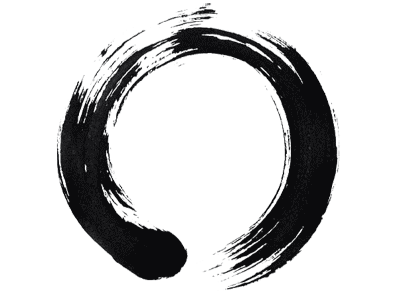The posthuman condition introduces a qualitative shift in our thinking about what exactly is the basic unit of common reference for our species, our polity, and our relationship to other inhabitants of this planet” (Rosi Braidotti, 2013)
In this short essay, I wish to look into the field of posthumanism and the future of religion. Part of the definition of posthumanism and the posthuman seem to revolve around the dissolution of boundaries and dichotomies, which is something that likely would result in some kind of reaction in various fields – including the domain of spirituality. Just as posthumanism isn’t a new idea, but has seen a resurgence in the last couple of decades, the age-old question of what it means to be human, is being asked with increased urgency given the current technological developments. (Stefan Herbrechter 2013, 3). This is why I think spirituality will have an important role to play in the transition to a posthuman world and the challenges that already face us, as a result of our continued evolution and progress.
One way spirituality is relevant in a posthuman world, is if it contains and relates to some of the same characteristics that defines posthumanism, and that it is able provide a direct, inner experience of the new paradigm. The common ground could very well be the dissolution of the anthropocentric worldview and the humanist idea of what it means to be human.
“The dichotomies between mind and body, animal and human, organism and machine, public and private, nature and culture, men and women, primitive and civilized are all in question ideologically” (Haraway 1991, 160)
This is a huge subject with many complexities that is impossible to take into account, and should be seen as a tentative thought experiment concerning the future of spirituality/religion or “(…)the set of symbolic forms and acts which relate man to the ultimate conditions of his existence.” (Robert Bellah 1964, 359) in a posthuman world.
The present-day example I’ve chosen to represent this spiritual pendant to the idea of posthumanism, is the philosophy of non-duality, which can be defined as: “(…)the philosophical, spiritual, and scientific understanding of non-separation and fundamental intrinsic oneness.” (Science and Nonduality).
Non-duality means not-two and its essence lies in the realization of oneness. In other words; it is about seeing through the apparent separateness of ourselves and others/ the world, which I argue includes a radically different and essentially posthuman view of the body and identity – a dissolvement of boundaries.
“Dualities are usually seen in terms of opposites: Mind/Matter, Self/Other, Conscious/Unconscious, Illusion/Reality, Quantum/Classical, Wave/Particle, Spiritual/Material, Beginning/End, Male/Female, Living/Dead and Good/Evil. Nonduality is the understanding that identification with common dualisms avoids recognition of a deeper reality.” (ibid.)
Non-duality could therefore, in my understanding supplement and be of importance in the transition to a posthuman world. It can offer a direct experience of an anti-anthropocentric way of understanding the self and world, that would be tolerant of all lifeforms – acknowledging the fundamental oneness behind the difference of outer form. In that sense it could perhaps be seen as a possible future variant of spirituality – enableing us to embrace the end of anthropocentric ideology – in other words posthumanism.
“We have to learn to accept alternative forms of being and living; we have to overcome the hierarchies man has introduced to the world, placing animals, technology, females and other races beneath him. (…) No matter, how we will look in the future, we are all part of and living in this world. The ‘post’ in posthumanism does not mean a post-biological embodiment, but the ‘post’ should represent the “real” heritage of humanism. Thus, the ‘post’ becomes our starting point.” (Raoul Guariguata, 62)
References:
Bellah, Robert
1964 Religious Evolution, American Sciological Review, Vol 29, No 3, p 358-374, American Sociological Association
Braidotti, Rosi
2013 The Posthuman, Polity Press, Cambridge.
Guariguata, Raoul
Countdown to Extinction? – Posthumanism in Science Fiction, https://www.academia.edu/2061036/Countdown_to_Extinction__Posthumanism_in_Science_Fiction (seen 03.10.2016)
Haraway, Donna
1991 “A Cyborg Manifesto: Science, Technology, and Socialist-Feminism in the Late Twentieth Century,” in Simians, Cyborgs and Women: The Reinvention of Nature, Routledge, New York.
Herbrechter, Stefan
2013 “Towards a critical posthumanism”, from Posthumanism: A critical analysis, London: Bloomsbury.
Science and Nonduality
“Nonduality”, www.scienceandnonduality.com/about/nonduality/ (seen 03.10.2016)

Leave a Reply
5 Comments on "The End of Distinction – Posthuman Spirituality?"
Your post and the comments following got me thinking about both the question of non-Christian spiritualities and their connection to posthumanism as well as the spirit/body binary that often predominates in our discussions of the spiritual. How might spirituality be an embodied practice? Would encoding spirituality as a bodily practice (with anything from carrying to body to church to meditation, energy work, etc.) change our understanding of it in posthuman terms, and perhaps help us see these ideals differently? I appreciate your distinction between religion and spirituality as well, and think that’s an important challenge to make.
Hi Maja.
I find your post very interesting as it made me reflect upon whether the posthuman is a Western construction keeping in line with an individualistic worldview. I recall readings of collective as well as indigenous cultures having a non–dualist understanding of life and the living.
Could we then talk of a postwesternhuman as opposed to a postnonwesternhuman?
I also wonder if we could explore even further how religion and spirituality is configured and situated today in different contexts. That is, which elements are to be considered as still deeply human and which elements have posthuman potential.
Best wishes from Charlotte